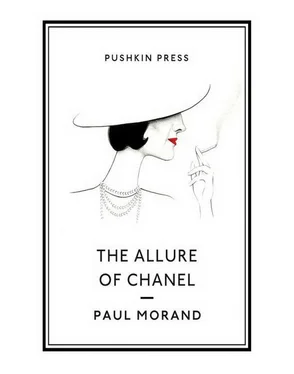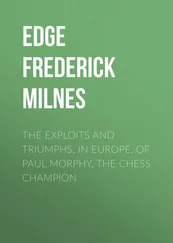It is as dreadful to be too rich as it is to be too tall. In the first instance you don’t find happiness and in the second you can’t find a bed.
Westminster has a delightful temperament, provided you don’t bore him. He gets bored enough on his own as it is. He’s a corpulent chap, heavy, robust, at least on the outside. His intelligence lies in his keen sensitivity. He abounds in delightful absurdities. He does harbour a few grudges, petty elephant-like grudges, which he keeps simmering because he’s a tease. He doesn’t much care for human beings, but mainly likes animals and plants.
At Eaton Hall, in Cheshire, as I walked in the grounds, I discovered, hidden away in a valley, some greenhouses that were as big as those that belong to the City of Paris. They grew food, for every season, peaches, nectarines, strawberries … just as they once did in Russia or in Poland.
I took Westminster there. He didn’t seem to be aware that he owned all that; we pounced on the strawberries, picking them like schoolchildren. The next day I wanted to go back on my own to the greenhouses; the doors were locked. I told my good friend about this, and he had the head gardener summoned.
“I locked the greenhouses because some thieves had stolen some strawberries, my lord,” said the gardener.
“The thieves … it was Mademoiselle!” replied Westminster feebly.
The gardener had spent his life at Eaton Hall and it had never occurred to him that his master might, even playfully, eat strawberries straight from the bed.
We went back to the greenhouses, on another occasion:
“What beautiful flowers!” exclaimed Westminster. “Where do all these magnificent orchids go? Why do we never see them at the house?”
“They go to hospitals, to the church …” replied the head gardener.
I admired the way these immense fortunes became anonymous and were swallowed up in the community, as a river that is too broad seeps into the sands.
In spite of the greenhouses, Westminster only really liked natural flowers, and he continued to do so. What gave him greatest pleasure was to bring me the first snowdrop, picked from the lawn, in a box.
Westminster has houses everywhere. On every new trip, I discovered them. He is far from knowing all of them: be they in Ireland, in Dalmatia, or in the Carpathians, there is a house belonging to Westminster, a house where everything is set up, where you can dine and go to bed on your arrival, with polished silverware, motor cars (I can still see the seventeen ancient Rolls in the garage at Eaton Hall!) with their batteries charged, small tankers in the harbour, fully laden with petrol, servants in livery, stewards and, on the entrance table, always scattered everywhere, newspapers, magazines and journals from all over the world.
The money spent on periodicals that are delivered here and which no one reads would provide me with income enough, a Scotsman, an old friend of Westminster’s, said to me.
On the moors of Scotland, the grouse are ready to be shot, or the salmon to be fished; at the same moment, in the forest of Villers-Cotterêts or in the Landes, the stalkers who track the wild boar or stags have only to saddle their horses to prepare the way and pick up the right scents; you have to wonder whether they sleep in their red clothes, or whether the captains of the yachts, which are always under sail or being pressurised, are not in reality painted onto their poop-decks, and, in short, whether this absurd fairyland (which isn’t even intentional, but which exists because that’s the way it has been, for generations) is not a bad dream, a tramp’s dream.
Eaton Hall is on the outskirts of a pretty town (Hester, which belongs to His Grace), in Shakespeare country, full of black and white half-timbered houses with pointed gables from the time of Falstaff. All that is left of the castle, which defended the Roman frontier against the Welsh for a long time, are its medieval cellars, for it resembles Walter Scott Gothic; it is surrounded by Italian-style terraces, training routes for horses from the studs, model farms, forests of rhododendrons as in the novels of Disraeli, and galleries where the Rubens, the Raphaels, the English masters and the Thorvaldsens are all the rage.
Why did Westminster like me?
Firstly, because I had not tried to lure him. English women think only of luring men, all men. If you have a very famous name and are immensely rich, you stop being a man and become a hare, a fox. Every day is the opening of the hunting season. In these sorts of situations, you can imagine how restful it is to live with someone you have pursued yourself, someone who the next day, probably, will dig a hole under the cage and run away.
English women are either pure spirits (‘souls’), or grooms. But in both cases they are huntresses; they either hunt with horses or with their souls, but it’s always a chase. In my case, it’s never occurred to me to say: “There’s a man I like, I’ll catch him, where’s my gun?” Sport has become second nature to many English women, but first of all comes man.
Aurélia rides very well; she has the reputation of always being behind her dogs. One day, on horseback, I said to her:
“So jump then!”
“Oh! no! I’m too frightened, alone with you … I’ll only jump if there’s a man to watch me. It’s not worth it, just for you.”
Westminster liked me because I was French. English women are possessive and cold. Men get bored with them. (American men, on the other hand, can’t stand French women; they never, or hardly ever, marry them. Whereas there are countless French women who have been successful in England.)
Besides, English women are not entirely disinterested. French women used to be, they’re not any longer. (You mustn’t accuse me of running down English women. Firstly, I run everybody down; secondly, what I am saying collapses in those mirrors of social customs that are English novels; especially bad ones, of which I’ve read so many; bad novels paint a much more striking picture of society than good ones do.)
We, ourselves, are not to blame if English women are gauche; if they only do things that displease men. The English are a breed of horse. At the races, or playing cards, they’re horses. Swift saw it very clearly. Do you remember, in Gulliver , in the land of the Houyhnhnms, the two horses that converse by saying “ Houyhn, houyhn ”?
I said all this once in an article that caused a stir in London. The article was by Randolph Churchill; he had submitted it everywhere and it had been turned down. I went along with him to the Daily Mail : the article appeared on the front page, at the time of Ascot. I only mentioned English men, with gentle humour. Not a word about women. It was a great success: all the men fought over it.
Tilly, a Frenchman who, at the end of the eighteenth century, wrote some of the most pertinent and impertinent things about the English, made this extremely accurate remark: “The English are the best people in the world at marrying their mistresses and asking them least about their past.”
As to friends.
There was Churchill.
There was the tiny Duke of Marlborough, whom I called Little Titch, alongside his giraffe-like mother. He said of his wife: “The duchess thinks she is the most refined of all women.”
There was Lonsdale.
My friends bored him. He couldn’t understand Misia at all, and she couldn’t understand England at all. He was appalled by Sert, who sawed off swans’ beaks so that they would die of hunger, and who pushed dogs into the Grand Canal in Venice.
It was not my destiny to become an Englishwoman. What is termed an ‘enviable situation’ is not one for me. I insisted that he got married.
I grew bored, with that squalid boredom that idleness and riches bring about. For ten years, I did everything that he wanted. A woman does not humiliate herself by making concessions.
Читать дальше












